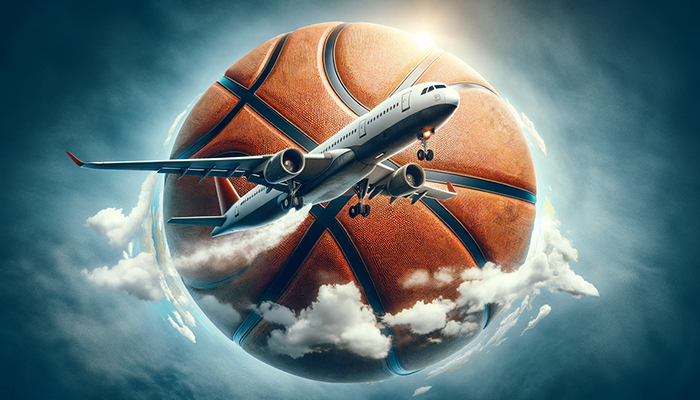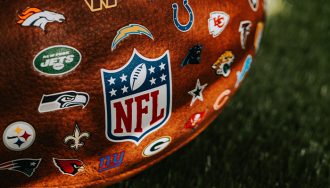How Athlete Travel Affects Preparation and Performance
 Athlete Travel Fatigue Impacts
Athlete Travel Fatigue Impacts
In everything from college division leagues to major professional league sports, athlete travel is a fundamental part of the job. But what impact does this have on players’s performances, and are there long-term health effects of this regular travel? In recent years, more studies have been undertaken to explore not only what regular travel can do to players but also how athletes can approach their transit to improve their recovery. We have covered this fascinating topic in detail in this guide.
The Impacts of Athlete Travel Fatigue Explained
As sports bettors, it’s important to understand that travel may have an impact on the performance of competing teams and players. Jet lag has been proven to have detrimental effects on players’ mental and physical health, so we’ve kicked off this guide by looking at what these impacts are. From there, we’ve covered how teams are mitigating these impacts before, during, and after travel. To round out the guide, we’ve looked at the sports with the most travel and discussed when travel should be considered during sports betting.
- 😴 The Effects of Athlete Travel
- 🧳 Combatting Impacts of Travel Fatigue
- ✈️ Long-Term Travel Fatigue Impacts
- ⚽ Sports With the Most Travel
- 💸 Athlete Travel and Sports Betting
The Effects of Travel on Atletes
Depending on the sport, league, or division an athlete is competing in, they could be expected to travel more than 25,000 miles per year. This could be for training, competition, and promotion, so it’s not uncommon for them to cover huge transit distances multiple times per week.
Over time, athlete travel fatigue can take its toll on the physical and mental well-being of players, and this can of course amount to reduced ability to prepare or perform consistently in important games. In the following section, we’ve described the well-documented effects of travel on athletes.
Physical Effects
One of the biggest challenges for athletes comes in the form of jet lag. This is a sleep disorder that results from crossing multiple time zones in quick succession, which in turn disrupts the body’s circadian rhythm. The body is most affected by this when traveling west-to-east, so even traveling from Los Angeles to New York can have minor impacts on athlete’s sleep cycles.
The impacts are especially detrimental on long-distance flights, which players in major international sports such as soccer are regularly exposed to. With sleep disrupted, athlete travel fatigue and insomnia can kick in, resulting in decreased cognitive function, speed, strength, and endurance.
Other impacts from plane travel include heightened stress and exposure to germs and dry air. These can not only put players at the risk of falling ill but also severely impact recovery times. The expansion of passengers’ stomachs and intestines due to changing cabin pressure may also impact digestion.
Once the athlete has arrived at their destination, exposure to different climates and altitudes will also impact them if they are used to different environmental conditions. High altitudes have decreased oxygen levels, which affects aerobic capacity and in turn, produces a lower tolerance for physical exercise. Hot and humid climates can also promote dehydration and exhaustion.
Mental Effects
The effects of athlete travel can also result in undesirable mental performance issues that can disrupt players’ ability to play. As any regular traveler could tell you, being in a new environment can cause feelings of loneliness, isolation, and despair. This is exacerbated by being physically disconnected from support networks.
Some athletes may find the cultural norms of their environments disarming or distracting, and unreliable schedules can further cause frustration. Being in close quarters with teammates may also increase the chance of conflicts arising which can be stressful to navigate.
All of these situations can amount to mental fatigue, which will affect the ability of athletes to make fast and clear decisions during games. Players may become more irritable and prone to lash out, with prolonged exposure to mental stress leading to burnout. When combined with the physical impacts, the accumulating effects of athlete travel on the mind can be serious.
How to Combat Travel Fatigue and Promote Athlete Jetlag Recovery
Fortunately, there has been a wealth of research involved in sports medicine and athlete performance, and the field continues to evolve as mental health is being taken more seriously. There are several tried and tested strategies that teams rely on before, during, and after travel to promote recovery that we have identified below.
Before Travel
Before athletes prepare to travel, coaches and support staff should create schedules that account for recovery time from athlete fatigue after flying. Athletes should then adjust their sleep schedules in the days before departure to align with the time zone they are traveling to ensure that the transition is smoother.
Exercise and nutrition are key to recovery too, so nutritious meals should be catered to support their immune systems and energy intake. Athletes will want to be well-rested before the flight and avoid alcohol and other substances that can affect sleep cycles. For mental well-being, meditation and therapy can be employed to prepare athletes, with consistent routines followed to reduce stress and anxiety.
During Travel
Athletes should pay close attention to their hydration levels and food intake during travel, with light and nutritious meals eaten to maintain energy and to support recovery. Light stretching is recommended during long-haul flights to promote circulation, and meditation and breathwork can be employed to reduce stress.
To maintain a healthy sleep schedule, athletes should have access to items that can block out light and sound disturbances as well as maintain comfort. Alcohol and caffeine should also be avoided as these can impact sleep cycles. During the waking states, athletes should keep their minds active with music, podcasts, puzzles, and other stimulating activities.
After Travel
To combat athlete post travel fatigue, players should be well-rested before heavy training or competition. Athletes can reawaken the body, reduce stiffness, and combat inflammation by taking part in low-impact exercises such as swimming, yoga, walking, and cycling. Nutritious meals should be eaten and hydration maintained.
A schedule for natural light exposure should be followed based on how many time zones have been crossed, with a sleep schedule designed to promote athlete jetlag recovery. Athletes should be able to communicate with their support network back home, have access to counsellors to maintain mental well-being and participate in team-building exercises to strengthen community.
The Long-Term Impacts of Travel Fatigue
If not properly mitigated, athlete travel fatigue can have detrimental long-term effects on the physical and mental health of players. If people are chronically fatigued, their immune systems can falter and prevent speedy recoveries. Altitude issues may impact players’ cardiovascular health, while het lag can disrupt metabolism and hormonal balance.
Constant sleep disruptions can lead to mental issues and mood disorders such as depression and anxiety. If players are regularly distanced from their homes, families, and friends, this can also breed aggression and a lack of motivation. The accumulation of these impacts will result in burnout and may force athletes to retire early.
Sports With the Most Travel Time
In the USA, athlete travel times and distances are notoriously high, with even college division players expected to cross large distances to play rivals. Sports such as basketball and soccer also have large international followings, so athletes can travel far to reach larger audiences. You’ll find the sports with the highest travel requirements for athletes below.
| Basketball | Soccer |
| Ice Hockey | Golf |
| Tennis | Baseball |
| American Football | Formula 1 Racing |
| Rugby | Cycling |
Athlete Travel and Sports Betting
Have you been factoring athlete jetlag recovery into your sports betting selections? As we’ve covered, travel fatigue can have a huge impact on player performance and injury risk. Before you wager at a site such as those listed on our list of online sportsbooks, consider the travel distances, time zone changes, and recovery times players have endured.




